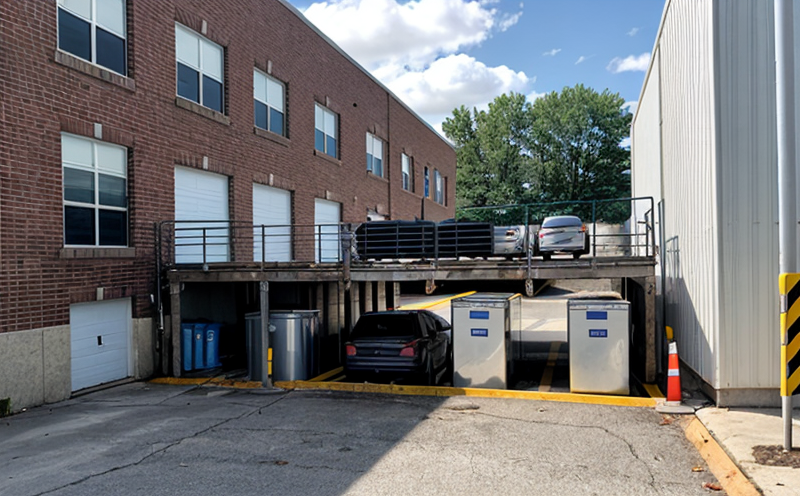Loading Dock Safety Inspection
The loading dock is a critical component of any transportation and logistics facility. It serves as the interface between the internal operations of an organization and external suppliers, customers, or carriers. Ensuring the safety and efficiency of this area is paramount to prevent accidents, reduce liability risks, and enhance overall operational performance.
Loading docks often present unique hazards such as slip-and-fall incidents, vehicle collisions, and worker fatigue due to repetitive tasks. A comprehensive loading dock safety inspection involves a thorough assessment of all potential risk factors. This includes evaluating the physical structure, ensuring proper lighting, checking for adequate security measures, and verifying that all equipment is in good working order.
At Eurolab, our team of experienced professionals conducts detailed inspections using industry-recognized standards such as ISO 45001 for Occupational Health and Safety Management Systems. Our approach ensures that you receive a holistic view of your facility's current state and identify areas requiring immediate attention or long-term improvements.
The process typically begins with an initial walkthrough to gain a comprehensive understanding of the dock layout and operational procedures. From there, specific tests may be conducted depending on identified risks and regulatory requirements. These could include pressure testing for door seals, checking emergency stop mechanisms, verifying safe approach distances from vehicles, and confirming proper use of safety equipment like guardrails.
A key aspect of our service is providing actionable recommendations based on findings. This helps facility managers prioritize necessary upgrades while also offering guidance towards developing safer work practices. By partnering with Eurolab for regular inspections, you can ensure continuous adherence to best practices and stay compliant with relevant regulations.
Applied Standards
The loading dock safety inspection at Eurolab adheres strictly to internationally recognized standards that govern workplace safety. These include:
- ISO 45001: Occupational Health and Safety Management Systems
- AZS 795: Safe Working Practices for Loading Docks
- EN ISO 23826: Design of loading facilities
These standards provide a robust framework ensuring that all aspects of the inspection are addressed comprehensively. They also serve as benchmarks against which Eurolab measures its own performance.
Industry Applications
| Application Area | Description |
|---|---|
| Manufacturing Plants | Incorporating loading docks into production lines allows for efficient material handling and reduces downtime. Our inspections help maintain these systems safely. |
| Warehousing Facilities | A safe loading dock enhances warehouse operations by minimizing disruptions caused by accidents or equipment failures. |
| Retail Chains | Ensuring the safety of loading docks protects staff and maintains customer confidence in retail environments. |
The application areas listed above highlight how Eurolab's expertise can benefit various sectors within the transportation and logistics industry. By addressing specific challenges faced by these organizations, we contribute to their broader goals of operational excellence and safety leadership.
Eurolab Advantages
EuroLab offers several key advantages when it comes to loading dock safety inspections:
- Expertise: Our team consists of certified professionals with extensive experience in industrial safety assessments.
- Comprehensive Coverage: We cover all aspects of a loading dock, from structural integrity to operational procedures.
- Prompt Reporting: Timely reports ensure that issues are addressed before they escalate into more serious problems.
- Continuous Improvement: With ongoing support and advice, you can implement changes that lead to sustained improvements in safety standards.
Partnering with Eurolab provides peace of mind knowing that your facility is being safeguarded by experts who stay abreast of the latest developments in occupational health and safety practices.





